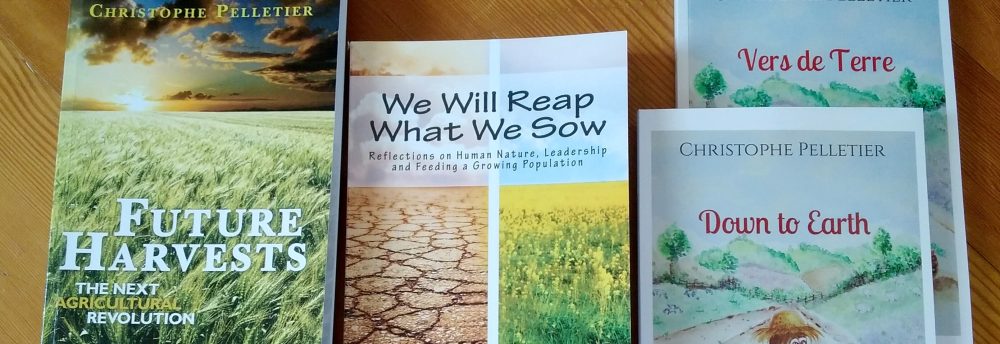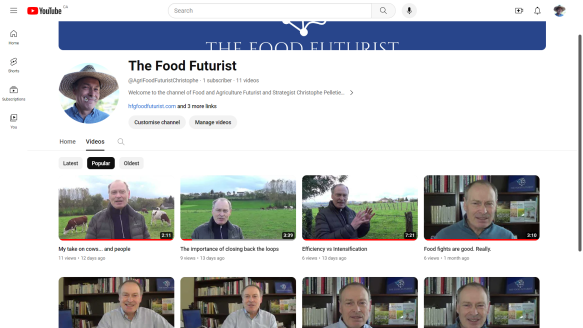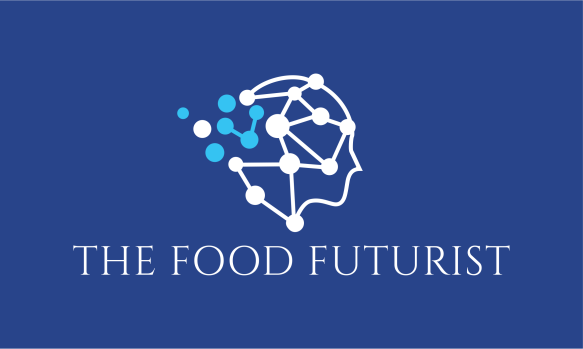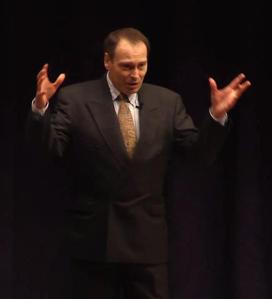Probably, the question that I have been asked the most in all my years as a food futurist has been “What does a food futurist do and how and you do it?” Of course, being a food futurist is just like any other business. There is no one-fit-all approach. Different people and organizations have different needs and different expectations. As a food futurist, I have had to define my niche. That said, the term futurist is used in many ways and can cover very different activities. In the food and agriculture sector, the theme of the future of food and farming has actually shifted more and more as a marketing gimmick for many organizations. It has lost its role of foresight to just be another term for what used to be new product development. Personally, I do not use the word futurist to be a consultant under a sexier and trendier name. I focus on the future in a way that I described in my article What future do you want? Although the futurism market is segmented, just as any other market, I see a number of characteristics that make a futurist truly add value.
Accurate predictions
In my opinion, this is the number one key performance indicator of a futurist. Since the job is about what is not here yet, what the futurist says as to be a prediction, in the true sense of the word, with the prefix pre, meaning before, and diction being what s/he tells. A good futurist is someone who tells the future accurately before it happens and before everyone else. Accuracy is of course essential to spot a good futurist. Someone who consistently predicts accurately is of course highly valuable. If the futurist makes predictions with a low rate of accuracy, someone’s time is being wasted. As far as I am concerned, in my career. Often, I met skepticism or disbelief but generally speaking, my predictions came true some time later. The same thing happened with business strategies. In particular, since I started this blog, I made many predictions in my articles and in my books. I also made many for my customers. Most of them are out there and I leave it to you to decide whether you think my predictions have been accurate. I have my own opinion on the subject. As a teaser, I have compiled a number of them in my page Some of my past predictions.
An actual futurist
 As I said earlier, there are many ways to be a futurist. The way I look at it, a futurist must present the future before it happens. It is the result of research and analysis, and the vision that comes out has to be substantiated with strong arguments. Since it is about the future, it cannot be about what already exists. Writing the present in the future tense does not make it a prediction. Many futurists, especially those who like to focus on technology tend to stick too much on presenting catalogues of what is already in the works. To me, this is not a foresight job. It is a journalist, a story teller and/or a student’s job. Similarly, presenting the future as a way to sell particular products categories or advocate for some production systems, whichever they might be is not a futurist’s job, they are sales rep’s, advocate’s, activist’s or a lobbyist’s jobs. Personally, I never advocate anything. I do not let my feelings or opinions stay in the way, either. I just present arguments to weigh in favour or against, so that my customers can decide for themselves. Actually, this way of working sometimes made me change the way I looked at the future myself.
As I said earlier, there are many ways to be a futurist. The way I look at it, a futurist must present the future before it happens. It is the result of research and analysis, and the vision that comes out has to be substantiated with strong arguments. Since it is about the future, it cannot be about what already exists. Writing the present in the future tense does not make it a prediction. Many futurists, especially those who like to focus on technology tend to stick too much on presenting catalogues of what is already in the works. To me, this is not a foresight job. It is a journalist, a story teller and/or a student’s job. Similarly, presenting the future as a way to sell particular products categories or advocate for some production systems, whichever they might be is not a futurist’s job, they are sales rep’s, advocate’s, activist’s or a lobbyist’s jobs. Personally, I never advocate anything. I do not let my feelings or opinions stay in the way, either. I just present arguments to weigh in favour or against, so that my customers can decide for themselves. Actually, this way of working sometimes made me change the way I looked at the future myself.
A good futurist must be ahead of the pack, which can be lonely, and come up with an original angle. If it is not original, then it already exists and then the story is not a prediction anymore. In such a case the futurist is more of a follower than a leader. A good futurist anticipates. If there is a requirement to carry out a thorough rational and objective analysis, being a futurist requires a strong intuitive side and a strong sense of anticipation. People who have rational and analytical skills combined with intuition and a “sixth sense” are quite rare. Usually, most people are strong on one side only. Having both is a gift, for the futurist of course, but especially for the customers.
Independent and candid
Good futurists must be objective. They must be able to present a vision of the future that is not biased. This is where things can become difficult. Often, the futurist wants to please the customer and will emphasize the bits that make people happy and avoid the topics that are sensitive or even controversial. Yet, in my view, useful futurists will tell things the way they see them, regardless of whether the customers likes what they hear or not. Being candid allows telling the full story. I see resisting candour as actually short-changing the customer by holding some bits of the future. It might be tactically useful as customers who love everything might be more inclined to have repeat intervention for the futurist, but they might miss much other beneficial information. Sometimes, it is the other way round. The customer is the one who does not want to hear about certain topics.Then, I wondered why they would pay someone while applying what is a form of censorship. I have no interest in such assignments.The future has to be a bit shocking and disturbing; otherwise something is missing in the picture. The future should trigger resistance and requests for further explanations. After all, futurists are not oracles or gurus, although sometimes people seem to like seeing them that way. No, a futurist presents a vision and from there, a conversation must follow. Especially, it some bits of the vision strike a nerve, it is essential to go to the bottom of things and understand what substantiates the vision. This dialogue is critical to get the full value of a futurist. Otherwise, it is no more than a flat presentation, often quite entertaining, but with limited staying power. I guess I can say I have staying power since I have been doing this since April 2009. I have seen many others venturing as food and/or agriculture futurist but choosing the past of least resistance and they lasted a couple of years at the most. If I were to pinpoint a frustrating part of being a futurist, I would say that it would be the lack of this getting to the bottom of things. I find people are not curious and inquisitive enough, or perhaps they are too nice and do not want to engage in a passionate dialogue. They should because the vision is just the tip of the iceberg. The future encompasses much more that the vision and customers should dive deep to see the entire iceberg. At least, I wish they would. This why I always organize my schedule to have plenty of time available for my customers after my presentations. Often, informal after hours conversations are more conducive than formal stage time for good conversation.
Experience and specialization
There are futurists who will talk about the future of everything. It can be done but it depends for which purpose. Like anything else in life, there is a trade-off. I chose to focus on food and agriculture only. The reason is simple. I want to spend my time to deepen my expertise in this field. A person has only so much time and if I tried to do the same quality of work for all sectors of life, I would have to cut the time I can allocate to each of these sectors. It is the old joke of being a generalist vs. being a specialist, the generalist being someone who knows less and less about more and more things while the specialist is someone who knows more and more about less and less. In a way, I have specialized in food and agriculture, but I see myself much more as a generalist, though. Of course, my personal and professional background help me, although my experience and using my critical mind through my education and professional experience also help me a great deal to know what works and what does not. I do not see my work as a food and agriculture futurist as a continuity from the past. On the contrary, I want to look at the sector with new eyes all the time. Otherwise, I would be like many futurists/consultants who are trying to recreate the old jobs they lost. I do not have any particular interest in this approach. Even though I have chosen to focus on food and agriculture, I do follow everything I can outside of food and agriculture. If I did not, I would not be good at what I do. I spend a lot of time following other sectors of activity and even economy, politics, history and philosophy to be able to understand all the interconnections that will shape the future. The future of food and agriculture will not originate from food and agriculture only. In a way, I probably could talk about many other sectors as well, but it would be at the cost of my in-depth analysis of all sectors. There, too, I would have a feeling of shortchanging the customer. Let’s say that I am a specialized generalist. I know less than specialists in their areas of specializations but I connect the dots and have the full 360 picture of the sector, and they cannot. I believe that this is a good approach, as my customers’ feedback tells me. But once again, the market is segmented.
Connecting the dots
The ability to get the big picture both within and outside the food and agriculture sector, together with the understanding of how all the interactions affect what can happen, where, when and how is a major asset in the work of a futurist. Nothing and nobody is on an isolated island. Just like my jiu-jitsu teacher used to say “it is all about action and reaction”. Even if certain things seem to have nothing directly with each other, I look at our world as a huge set of gears rotating together, or sometimes getting stuck. It is amazing how our world, present and future, is shaped by many events often far way and taking place at different times. It is better to keep your eyes and ears wide open. In particular, with food and farming, we are dealing with life, which is a nexus between the Earth, the air, the water and energy. Life is all about ecosystems and ecosystems evolve on equilibriums. This is what makes food and agriculture so interesting and so dynamic. The systems constantly have to maintain themselves and function in a delicate balance between many elements. The many levels for life to sustain itself make it powerful, yet vulnerable.
Critical thinking
Since the work of a futurist consists of a lot of research, it depends on the work of many others. Some are reliable and others less so. When browsing for information, it is essential to be able to sort out what is solid from what is not. To do this, it requires some serious critical thinking, as well as knowledge and experience. Not everything that is out there is true. It is important to know where reliable sources are and it is at least as important to know which sources are not. Personally, I do not care if what I read or watch -and I do a lot of that on a daily basis- comes from an expert, a Nobel prize, a high-rated university professor, an social media influencer (beware of those!), a billionaire or a celebrity. Even those who are considered in the know do not always say sensible things. The amount of useless stuff that I come across is quite impressive. In particular, the amount of myths, misinformation and fallacies that are carried around by people who either do not even read the stuff or do not have the knowledge to assess if something is true or false, or do not make the effort to do some critical thinking would really surprise you. Or maybe it would not. I am glad that I am naturally equipped with a seriously critical mind and I also am lucky that I have been in an education system with teachers that fostered this quality. Critical thinking is essential to a futurist. With a lack of it, the futurist can end up looking like a fool.
Open-mindedness
I mentioned the need for independence and objectivity earlier. It is also true that we all look at the world through a prism that we received from our parents, our culture, or teachers and our life experiences. I do not think that anyone can claim to be 100% objective and unbiased. This is where critical thinking helps a great deal, in particular by thinking critically about our own thinking (still following me?). It may sound a bit schizophrenic but with some practice it can be done without medication (just joking here). Without critical thinking, there cannot be any open-mindedness and without open-mindedness, there is no room for critical thinking. People who miss one of those or both, have no alternative than to fall in a binary world, the kind of binary world that the thought police and the political correctness brigades scourging social media try to impose. Let’s face it, people with an open mind and critical thinkers are dangerous, even subversive. They tend to scare the brigades I just mentioned. Especially, they escape their power. Yet, a good futurist must wade above that because anything that restricts our potential to develop a vision of a different world will ruffle some feathers, sometimes. Open-mindedness is essential to do this part of the work. Indeed, how can anyone think of a different world if they cannot accept for themselves first that it could be the way of the future?
Copyright 2020 – Christophe Pelletier – The Happy Future Group Consulting Ltd.




 I remember the day I started my own business, 17 years ago. It was a strange mix of feelings. On the one hand, I felt rather alone. I remember having this visual of me all alone in front of a vast deserted area. It was like I was the only person in the world with nobody around to connect. It was a little scary to say the truth, yet I felt quite Zen. On the other hand, there was this intoxicating feeling of being so free that at last now I would be the only one to decide for myself what I would want to do and what I would not want to do, to decide what goals I would set for myself and how I would want to achieve them. It was a mix of solitude and yet of full control over my life. On the professional side of my life, I chose the purpose to be happy by making my customers happy, meaning adding value to them and help them succeed. I guess I do, because all my customers have actually found me through my blog, my books, my presentations and word of mouth. I have never had to do any cold calling ever. And that maybe what gives me the most joy: what I do is useful to my customers and they notice!
I remember the day I started my own business, 17 years ago. It was a strange mix of feelings. On the one hand, I felt rather alone. I remember having this visual of me all alone in front of a vast deserted area. It was like I was the only person in the world with nobody around to connect. It was a little scary to say the truth, yet I felt quite Zen. On the other hand, there was this intoxicating feeling of being so free that at last now I would be the only one to decide for myself what I would want to do and what I would not want to do, to decide what goals I would set for myself and how I would want to achieve them. It was a mix of solitude and yet of full control over my life. On the professional side of my life, I chose the purpose to be happy by making my customers happy, meaning adding value to them and help them succeed. I guess I do, because all my customers have actually found me through my blog, my books, my presentations and word of mouth. I have never had to do any cold calling ever. And that maybe what gives me the most joy: what I do is useful to my customers and they notice! As another year is soon to end, it is a good time to look back and reflect on the future direction to take. Just as I repeatedly advise my clients and audiences to look forward, identify the changes to come and to adapt timely, it is a useful exercise that I carry out for my own business as well on a continuous basis. For the Food Futurist, 2013 has been a great year. The amount of business has grown strongly and the work of the past years is fully delivering its fruits. Venturing in a new area and starting from scratch has been quite the thrill, especially considering how much time it takes to get visibility, recognition and a solid reputation when the business is about mostly about what is in the owner’s brain and how that brain functions. My literature and the positive word of mouth have helped growing the business without me bothering organizations with cold calls or mailings. My clients have found me or heard about me in one way or another; and one thing leading to another, they decided to hire me for their projects and events. All assignments have run successfully with satisfied customers, all being very reputable and professional organizations.
As another year is soon to end, it is a good time to look back and reflect on the future direction to take. Just as I repeatedly advise my clients and audiences to look forward, identify the changes to come and to adapt timely, it is a useful exercise that I carry out for my own business as well on a continuous basis. For the Food Futurist, 2013 has been a great year. The amount of business has grown strongly and the work of the past years is fully delivering its fruits. Venturing in a new area and starting from scratch has been quite the thrill, especially considering how much time it takes to get visibility, recognition and a solid reputation when the business is about mostly about what is in the owner’s brain and how that brain functions. My literature and the positive word of mouth have helped growing the business without me bothering organizations with cold calls or mailings. My clients have found me or heard about me in one way or another; and one thing leading to another, they decided to hire me for their projects and events. All assignments have run successfully with satisfied customers, all being very reputable and professional organizations.